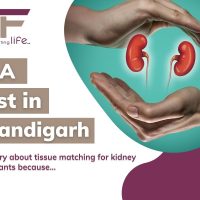Eating Habits and Control of Diabetes: Diabetes is a chronic condition that affects the body’s ability to process blood sugar, leading to high levels of glucose in the blood. It can lead to several health complications, such as heart disease, kidney failure, nerve damage, and blindness. The good news is that diabetes can be managed and even prevented with a healthy diet and lifestyle. In this blog post, we’ll discuss the relationship between diabetes and healthy eating habits, including what to eat and what to avoid.
CContents
The Importance of Healthy Eating Habits for Diabetes Management
A healthy diet is one of the most important aspects of diabetes management. It can help control blood sugar levels, maintain a healthy weight, and reduce the risk of other health complications. Here are some of the reasons why healthy eating habits are essential for diabetes management:
Eating habits and Control of diabetes
Controlling blood sugar levels: Foods that are high in carbohydrates, such as bread, rice, and pasta, can cause a rapid increase in blood sugar levels. By choosing foods that are low in carbohydrates and high in fiber, such as vegetables and whole grains, you can help regulate blood sugar levels.
Maintaining a healthy weight: People who are overweight or obese are more likely to develop diabetes. By maintaining a healthy weight through a balanced diet, you can reduce your risk of developing diabetes.
Reducing the risk of heart disease: People with diabetes are at a higher risk of developing heart disease. A healthy diet can help reduce this risk by lowering cholesterol and blood pressure levels.
What to Eat for Diabetes Management?
A healthy diet for diabetes management should include a variety of nutrient-dense foods, including:
Vegetables: Non-starchy vegetables, such as broccoli, spinach, and kale, are low in carbohydrates and high in fiber. They can help regulate blood sugar levels and provide important vitamins and minerals.
Whole grains: Whole grains, such as brown rice, quinoa, and whole-wheat bread, are high in fiber and can help regulate blood sugar levels. They also provide important nutrients, such as B vitamins and iron.
Lean protein: Lean protein sources, such as chicken, fish, and tofu, can help regulate blood sugar levels and provide important nutrients, such as iron and zinc.
Fruits: Fruits, such as berries, apples, and oranges, are low in calories and high in fiber. They can help regulate blood sugar levels and provide important vitamins and minerals.
Healthy fats: Healthy fats, such as olive oil, avocados, and nuts, can help regulate blood sugar levels and provide important nutrients, such as omega-3 fatty acids.
What to Avoid for Diabetes Management?
To manage diabetes, it’s important to avoid foods that are high in carbohydrates and sugar, such as:
Processed foods: Processed foods, such as chips, cookies, and cakes, are often high in carbohydrates and sugar. They can cause a rapid increase in blood sugar levels and should be avoided.
Sugary drinks: Sugary drinks, such as soda and fruit juice, are high in sugar and can cause a rapid increase in blood sugar levels. Water and unsweetened beverages, such as tea and coffee, are better choices.
High-fat foods: High-fat foods, such as fried foods and fatty meats, can increase cholesterol levels and increase the risk of heart disease.
White bread and pasta: White bread and pasta are high in carbohydrates and can cause a rapid increase in blood sugar levels. Whole-grain alternatives are a better choice.
Alcohol: Alcohol can cause a rapid drop in blood sugar levels and should be consumed in moderation.
Tips for Healthy Eating Habits for Diabetes Management
Here are some tips for developing healthy eating habits for diabetes management:
Choose nutrient-dense foods: Choose foods that are high in nutrients and low in calories, such as fruits, vegetables, whole grains, and lean proteins.
Monitor portion sizes: It’s important to monitor portion sizes to ensure that you’re not consuming too many calories or carbohydrates. Use measuring cups and a food scale to accurately measure portion sizes.
Spread out meals and snacks: Eating smaller, more frequent meals and snacks throughout the day can help regulate blood sugar levels and prevent spikes and drops.
Stay hydrated: Drinking plenty of water and other unsweetened beverages can help regulate blood sugar levels and prevent dehydration.
Avoid skipping meals: Skipping meals can cause a rapid drop in blood sugar levels and lead to overeating later in the day.
Read food labels: Read food labels to identify hidden sources of sugar and carbohydrates, such as added sugars and refined grains.
Limit processed foods: Processed foods are often high in carbohydrates and sugar and should be limited or avoided.
Cook at home: Cooking at home allows you to control the ingredients and portion sizes of your meals.
Plan ahead: Planning ahead and preparing meals and snacks in advance can help prevent impulsive food choices and ensure that you’re consuming nutrient-dense foods.
Seek guidance from a registered dietitian: A registered dietitian can provide personalized guidance on healthy eating habits for diabetes management.
Conclusion
Maintaining healthy eating habits is essential for diabetes management. A healthy diet can help control blood sugar levels, maintain a healthy weight, and reduce the risk of other health complications. By choosing nutrient-dense foods, monitoring portion sizes, and avoiding foods that are high in carbohydrates and sugar, you can develop healthy eating habits that support diabetes management. Additionally, it’s important to stay hydrated, avoid skipping meals, read food labels, limit processed foods, cook at home, and seek guidance from a registered dietitian. With the right approach, healthy eating habits can be an enjoyable and sustainable part of diabetes management.











Comments